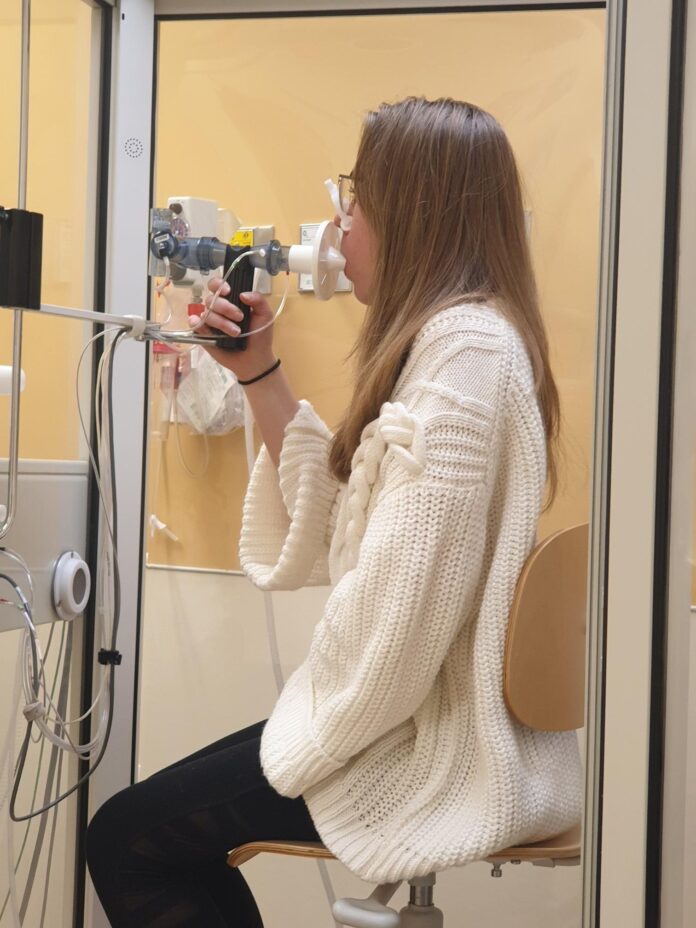Patients and physicians struggling to officially diagnose long COVID may be one step closer to an answer, thanks to new research from a team of Canadian scientists.
The researchers at Lawson Health Research Institute have discovered patients with post-COVID-19 condition, known as long COVID, have unique signs in their blood that show rapid changes in their blood vessels.
These signs, or biomarkers, are a tell-tale indication that a patient has long COVID — a finding that could help to develop concrete diagnosis methods for an illness that remains largely a mystery to physicians and scientists, says Dr. Doug Fraser, a Lawson scientist who has been studying long COVID since 2020. He is also a critical care physician at London Health Sciences Centre.
“There’s always been confusion in terms of what’s underlying long COVID and in fact, some people have even suggested that maybe it’s psychosomatic or it’s not a real medical issue,” he said.
Patients with long COVID can experience a wide range of symptoms, including fatigue, cognitive issues, shortness of breath and gastrointestinal problems. It can even sometimes take up to a year for some of these symptoms to materialize. This makes it hard for physicians and experts to definitively identify the illness and diagnose it in their patients.
But by looking at a patient’s blood vessels, rather than looking only at symptoms, the team of researchers in London, Ont., found a concrete, biological signal that something was indeed happening in those vessels that can be measured and identified.
“It tells us that it’s a biologically distinct event that’s going on in the body,” Fraser said.
“It’s not something that’s just occurring in the mind. It is a true event that’s going on.”
1:00
Managing “Long-Covid” symptoms
Dr. Michael Nicholson, associate scientist at Lawson and respirologist at St. Joseph’s Health Care London, says he believes this discovery could not only help move forward the efforts of those looking for more answers about this condition, it will also help many patients frustrated by the murky understanding of this illness that exists among both health professionals and the wider public.
“I think it is giving people peace of mind that this is actually happening in their body… having something to potentially grasp on to and move forward with is very important for them,” he said.
The researchers studied 140 blood samples from participants at London Health Sciences Centre and St. Joseph’s Health Care London, including patients from St. Joseph’s Post-Acute COVID-19 Program.
Related News
Global News Morning Kingston gets an update from infectious disease expert on long COVID-19
Participants included those with presumed long COVID, hospital inpatients with an acute COVID-19 infection and healthy patients as control subjects.
What they found was that patients with presumed long COVID had proteins in their blood demonstrating rapid changes in their blood vessels in the weeks and months after a confirmed COVID-19 infection.
These same biomarkers were not present in patients who did not develop long COVID.
Not only can identifying these elevated proteins be used to diagnose patients with this condition, it also points to processes going on in the body that could help in the development of potential treatments, Fraser said.
It can also give physicians a better way to measure when a patient is recovering from the illness, he added.
“I think it can go a long way towards giving the clinician information to pass on to the patients in terms of, ‘Your biomarkers now are starting to go back to normal, so you should see symptom resolution,” he said.
While the peer-reviewed study doesn’t identify why some patients develop long COVID and others don’t or what risk factors exist for patients in developing this illness, it does provide another piece of the puzzle for other scientists and researchers searching for these answers, Nicholson said.
“It’s definitely moving the needle in the right direction,” he said.
“People throughout the world are working on this in many different areas, focusing on lungs, on brain, on bowels. And so I think having some more information on a very simplistic point — which is a biomarker — I think, that really helps open the door and hopefully unravel more answers going forward.”
The team is now working on developing a new blood test that could be used to diagnose long COVID and also hope to explore possible treatments in future.
© 2022 Global News, a division of Corus Entertainment Inc.



